Fantastic Plastic Fashion Project with Rise and the MFI
The Challenge
Plastic waste and the costs of fast fashion are two of the greatest sustainability challenges we currently face. Both of these issues are centred around our patterns of production and consumption and can be tackled by a move to a circular economy. Plastics should be an ideal material for a circular economy as they can be used over and over again by being recut, reshaped, and repurposed. The problem isn’t with the materials themselves it is with our habits of producing too much and not re-using enough!

The Team
This thinking led to the creation of the Fantastic Plastic Design Challenge with Rise at Manchester Metropolitan in collaboration with a design team composed of Caitlin from The Plastic Shed, Jamie-Lee from Wainman Design, and Queen Bayard. This project challenged students studying fashion to create garments from repurposed plastics to be showcased by Queen Bayard in our first Fantastic Plastic Drag Show.
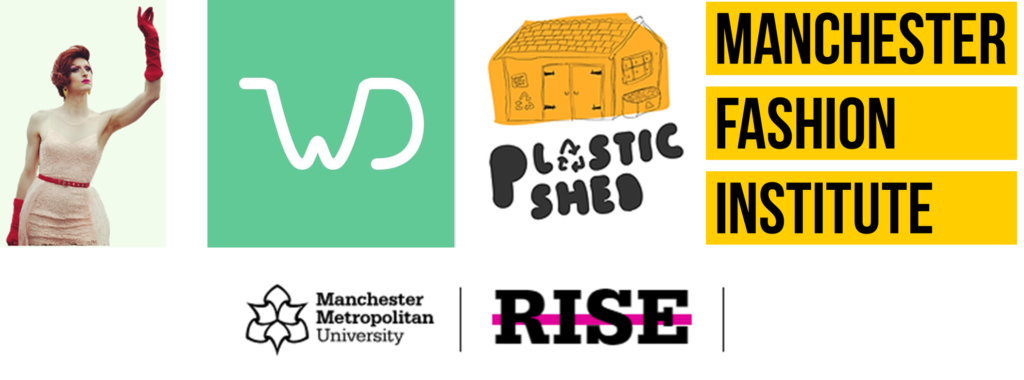
The Design
The project spanned an intense two weeks with design and creation taking place in the Manchester Fashion Institute (MFI) design studios and the workshops at the Plastic Shed and Wainman Design. The project launched with the design team outlining the reasoning behind the project and introducing the students to the repurposed plastic materials. Queen Bayard then provided their personal motivation for posing this challenge, and their measurements! With the runway set the students got to work, creating a top that incorporated the colour of the bottle caps into its funky design. One student pointed out that this could be easily dismantled into sets of earrings, giving the plastics a second second life!
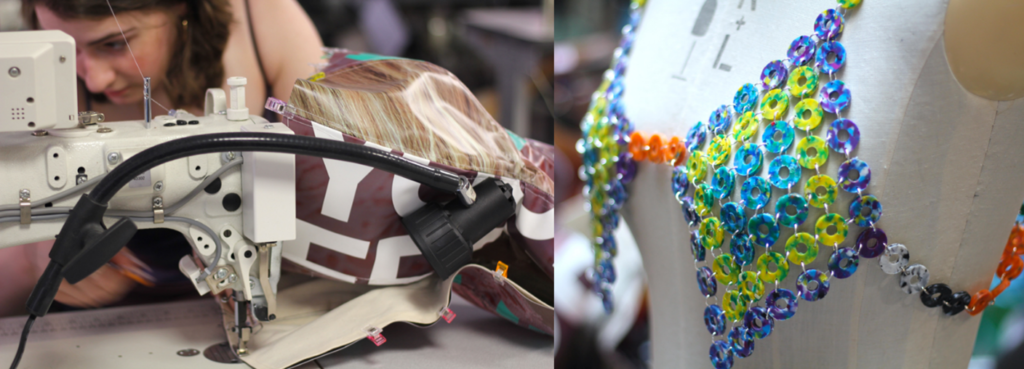
The Garments
This ability and drive to create continued throughout the projects as the students explored different approaches. Yi-Li took to 3D printing with the support of Jamie-Lee to create a whole range of amazing garments and accessories. This included a fully printed corset, complex interlocking plastic lace and a set of chokers and bracelets inspired by the human skeleton. Amrita, Khushi, Miriam and Abigail took to repurposing vinyl banners into a corsets and trousers. Through some clever design and an eye for style, they even managed to build their garments around the graphics printed on the banners. Amrita accessorized her outfit with a set of 3D-printed nails that were first prototyped using heated and folding crisp packets and bread bags.
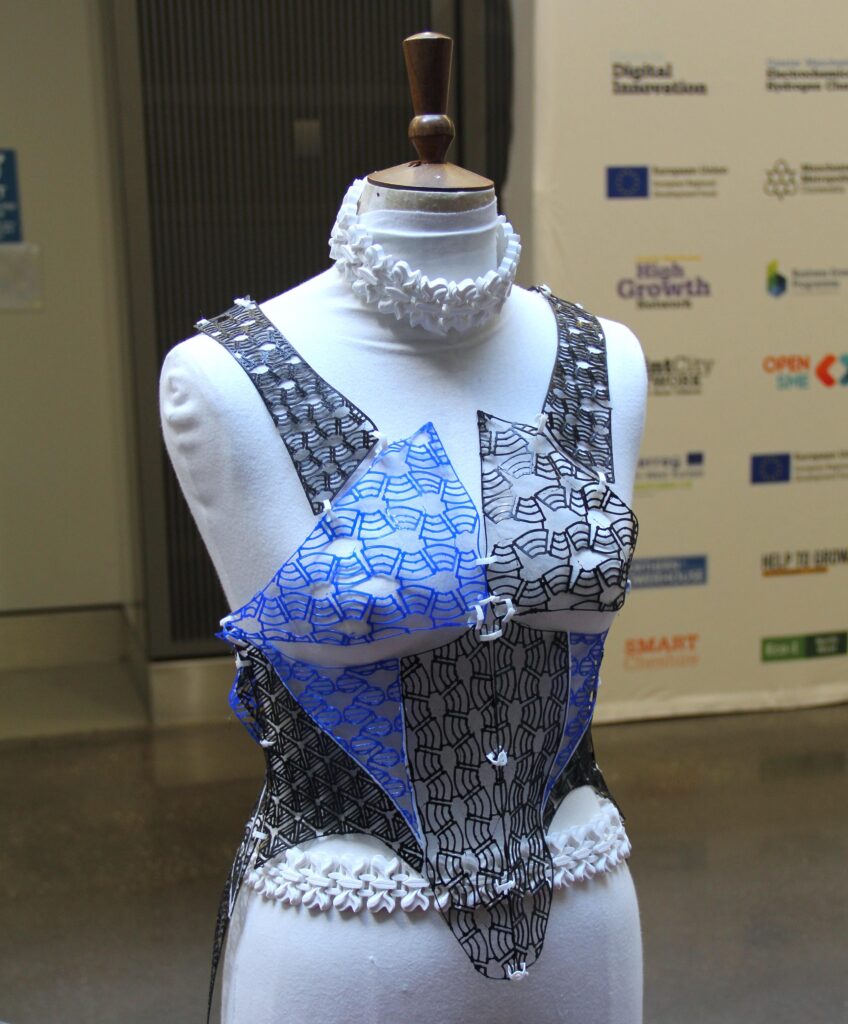
All these approaches successfully explored techniques of repurposing and reshaping materials that would otherwise have ended up in landfill. The use of 3D printing also provided the sustainable benefits of additive manufacture. Additive manufacture only uses the materials required, compared to subtractive manufacture which generates wastes through off-cuts.
That’s not to say the project didn’t have its challenges! The vinyl material proved quite difficult to work with both with stitching and wrestling it into shape. Luckily support from the MFI technical team and the determination of the students managed to battle through. The project also raised some questions that could be addressed in future challenges. For example, vinyl obviously isn’t the most comfortable material to wear (especially in July!) but with plenty of this material available and the ambitious innovation shown by the designers it is likely this could be tackled in the future.

The Festival
The project team celebrated their success with an exhibit at the Manchester Metropolitan Mid-Summer Sustainability Festival. All the amazing creations of the project were shown off throughout the day culminating in Queen Bayard’s fabulous plastic drag show. A real sense of pride was cultivated within the student team as they took a leading role in the day, explaining how they had turned their own visions into reality.
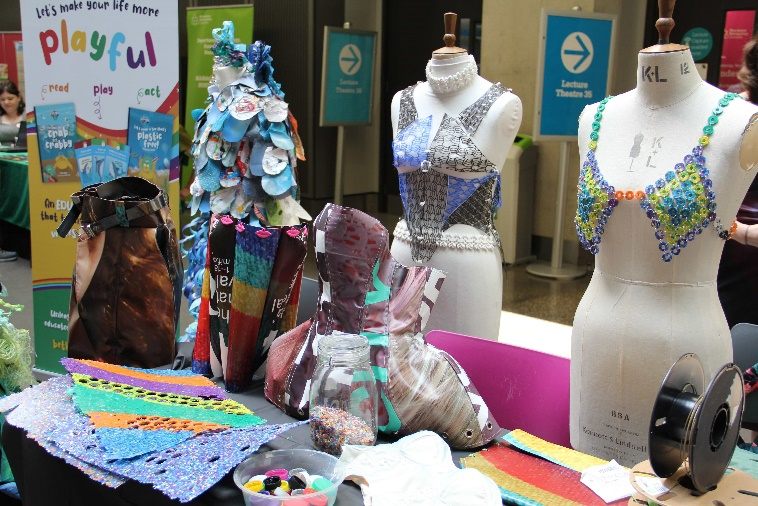
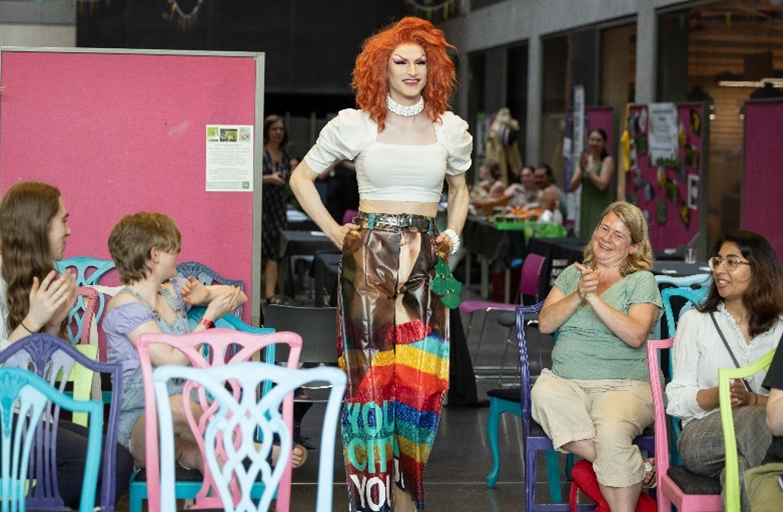
The Future
From my perspective as the project facilitator it was amazing to the see the positive feedback loop that formed between the design team and the students. The fashion expertise of the students was able to bounce off the design team’s knowledge and experience of working with the plastic material. This led to new ideas, techniques and creations. Looking to the future this project is aiming to be the start of a greater initiative with Rise at Manchester Metropolitan to foster the growth a network of students passionate about creating circular economy. With plenty of passion, innovation and (unfortunately) plastic waste, who knows what we will be able to create!
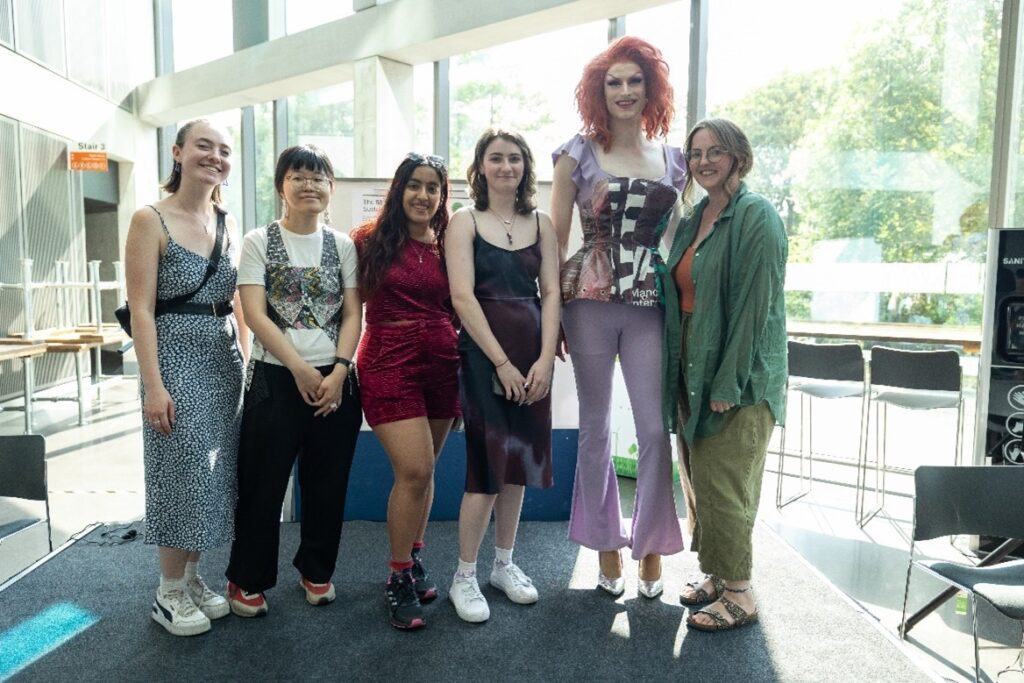
Matt Carney Rise Experiential Learning Tutor
Thanks to our student design team: Abigail Jackson, Miriam Myers, Yi-Li Chen, Amrita Mukhejee, Khushi Kumar; our experts Jamie-Lee Wainman, Caitlin Atherton; technical support George Beswick, Marie Slater and the rest of the MFI technical team and finally Queen Bayard for the initial challenge and drag show!






